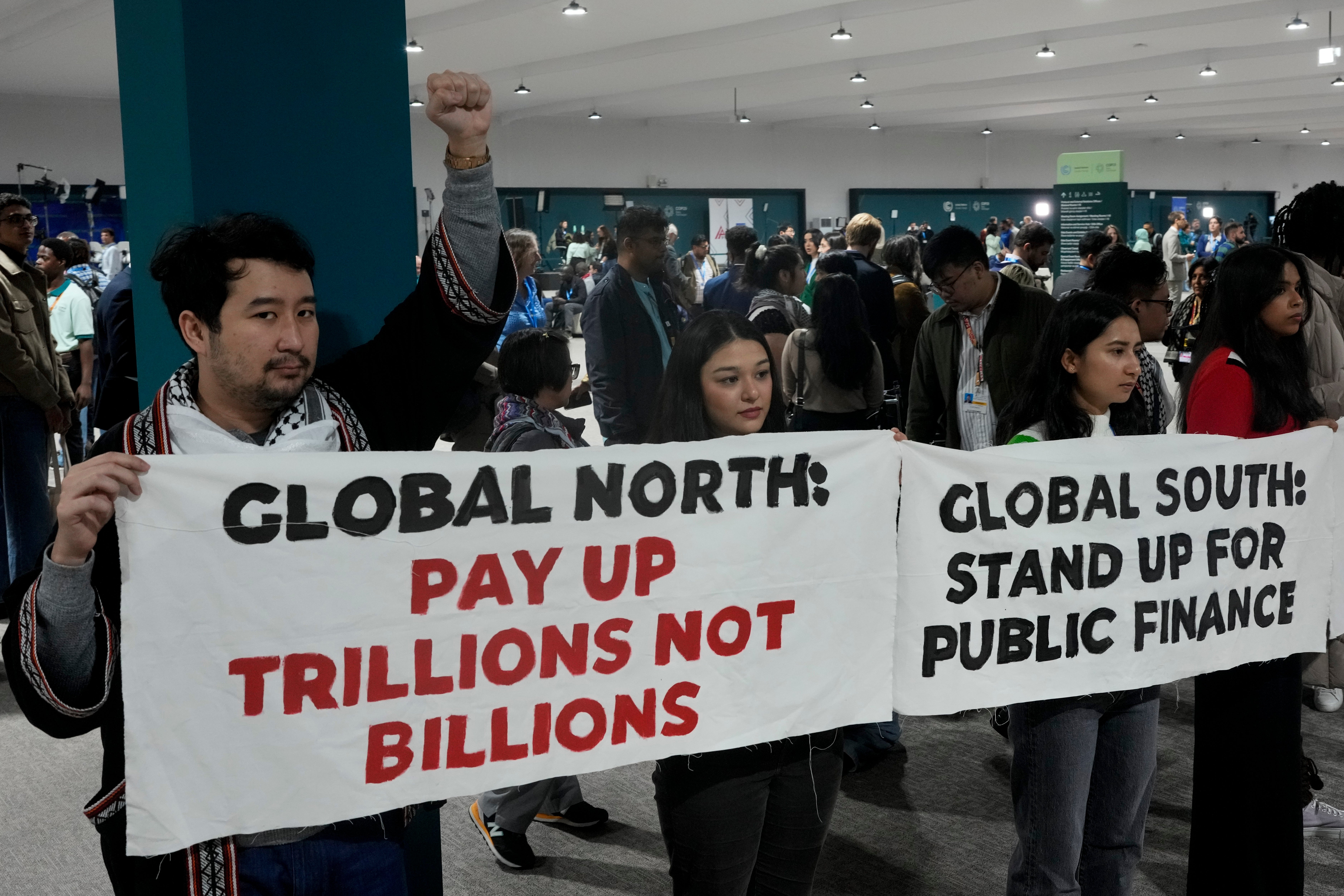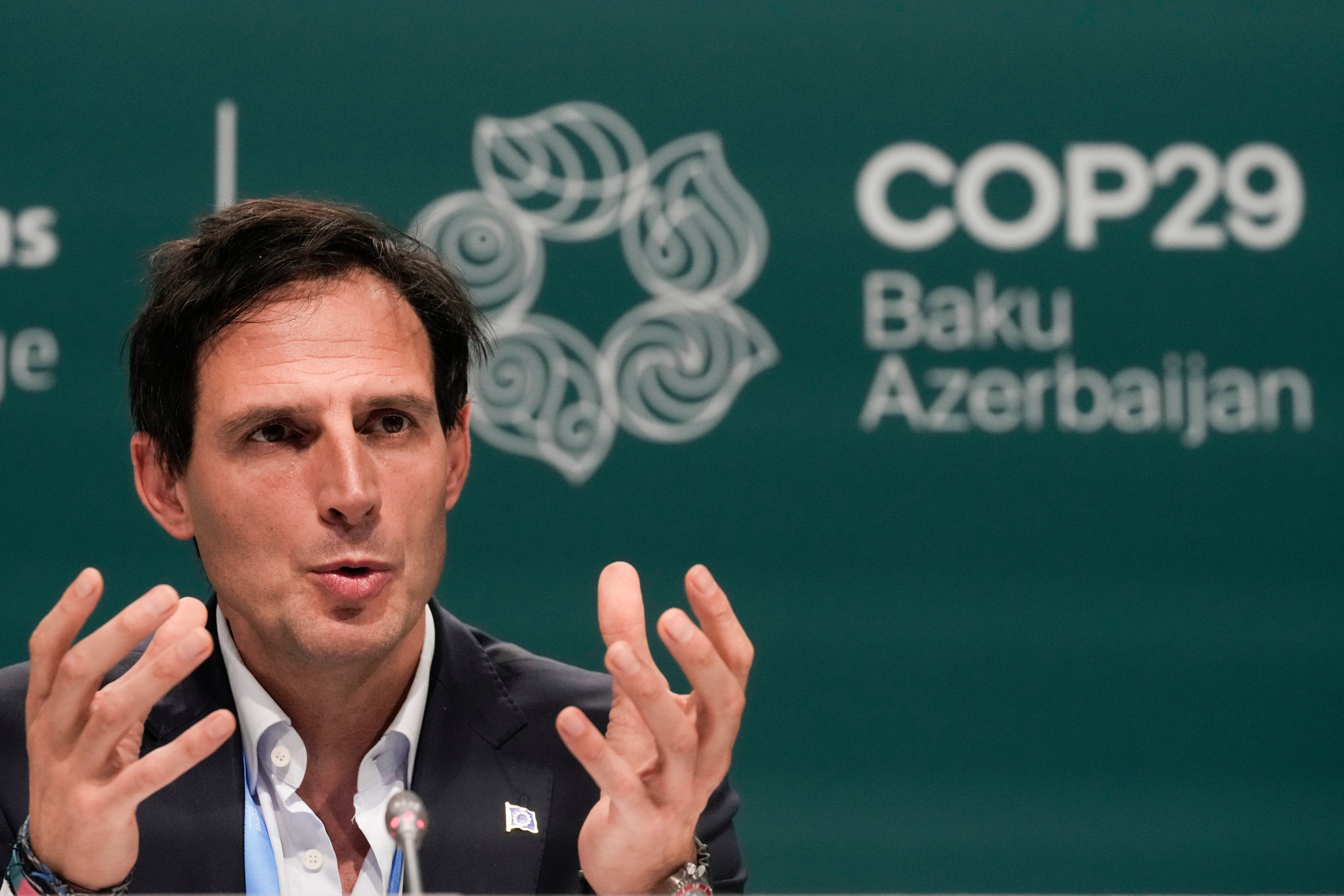
The UK is calling for countries to stick with the global agreement to transition away from fossil fuels as a major split emerged at the UN climate conference.
Tensions at Cop29 in Baku, Azerbaijan, intensified on Thursday after the latest proposals on a global agreement contained two diverging options on climate finance for poorer countries and lacked detail over mitigating global warming.
Negotiations opened with widespread condemnation of the proposals from both developing and developed nations.
Several parties like the UK, EU, Australia and New Zealand called for a deal that builds on last year’s agreement to phase out fossil fuels – something which has faced significant pushback from oil rich nations like Saudi Arabia.

The UK has long been pushing for countries to support this landmark Cop28 agreement and incorporate it into their national climate action plans, otherwise known as Nationally Determined Contributions (NDCs).
But it stepped up those calls on Thursday after the latest proposals were released.
At a press conference, UK climate envoy Rachel Kyte said: “At Cop28 we agreed NDCs should be economy wide, 1.5C aligned and cover all greenhouse gasses.
“In the context of what we’re doing here at Cop29, (it) is important that we cannot slide back from this agreement and we should collectively agree to move forward to act on this agreement.
If you look at the part of mitigation, it clearly did not do what we promised ourselves. We cannot accept the view that, apparently, for some the previous Cop did not happen
“We hope that other countries, especially major economies, will respond to this call and we welcome the indications from some countries that they are ready to do so in the coming days and months.”
The EU reflected a similar position with the European Commissioner for Climate Action, Wopke Hoekstra, saying the current proposals are “clearly unacceptable”.
“I’m not going to sugar coat this,” Mr Hoekstra said.
“If you look at the part of mitigation, it clearly did not do what we promised ourselves. We cannot accept the view that, apparently, for some the previous Cop did not happen.”
He added that the EU wants not just to restate the agreement but to “actually enhance that and to operationalise that”.
“I’m sorry to say there’s a lot of work ahead of us, for the presidency, for all parties involved, but I’m sure there is not a single ambitious country who thinks that this is nearly good enough.”

Campaigners were also quick to react on Thursday, with David Tong, from Oil Change International, saying “ambition has gone missing” in the negotiations.
Concerns over backsliding on the fossil fuel phase out agreement have been growing in recent days after G20 leaders stopped short of directly mentioning the issue in their communique from Brazil, where they met earlier this week.
Now a major split between industrial countries and poorer countries over finance has hardened at the UN climate talks, following the release of the two diametrically opposed finance options.
Economists say one trillion US dollars need to be flowing into developing nations by 2030 if the world is going to meet the 2015 Paris Agreement to limit dangerous global warming.
Poorer countries want to see developed nations paying at least one trillion each year from 2025, and invite richer developing nations the option to contribute on top of that.
But the second option floats vaguer proposals on richer nations paying trillions in all forms of finance each year from 2035.
Many on the ground at Cop29, on Thursday, said they see no route to reaching a landing ground for a deal within the diverging positions.
Andreas Sieber, from the 350.org campaign group, said: “The fight is on (for) getting a transformational finance goal here and following up from last year’s landmark decision transit away from fossil fuels.”
“We’ll see pushback from rich nations and they will want the wishy-washy climate finance option. That is not what we can accept here.”
Carola Mejia, from the Latin American Network for Economic and Social Justice, said: “These two options are still too far away from each other and they reflect different positions and proposals that need to solved.”
From the perspective of developing nations, she added that a 2035 target “could be too late for us”.
“We are already suffering the impacts.”
Neither of the finance options put forward reflects the position of the UK, which wants to see a compromise agreement.
The UK took on a key role in the negotiations on Wednesday as it carried out a round of consultation alongside Brazil.
The pair of countries gathered key requests from parties on how to reach a balance in the final deal between finance, mitigation and adaptation, which they will feed back to the presidency to inform the talks going forward.







